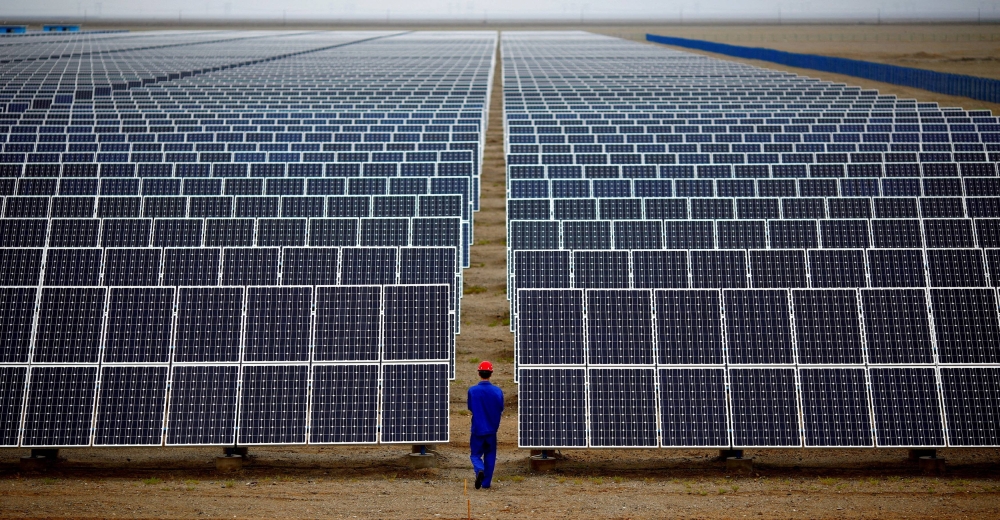How to Import Solar Panels from China
In recent years, the demand for renewable energy sources has surged, with solar energy emerging as a leading contender in the quest for sustainable power solutions. As the solar industry continues to grow, businesses and individuals alike are turning to importing solar panels from China as a cost-effective way to harness the power of the sun. In this guide, we’ll explore the essential steps and strategies to import solar panels from China successfully.
1. Introduction
Solar energy is rapidly becoming a crucial component of the global energy landscape, offering numerous benefits such as reducing carbon emissions, lowering electricity bills, and increasing energy independence. Importing solar panels from China presents an attractive opportunity for businesses and individuals looking to capitalize on the growing demand for renewable energy solutions.
2. Researching Solar Panel Suppliers
Before diving into importing solar panels, it’s essential to research and identify reputable suppliers in China. Look for manufacturers with a proven track record, certifications, and positive reviews from previous customers. Compare prices, product specifications, and shipping options to find the best fit for your needs.
3. Understanding Import Regulations
Navigating import regulations is crucial when importing solar panels from China. Familiarize yourself with customs procedures, tariffs, and duties applicable to solar panels in your country. Ensure compliance with local laws and standards to avoid delays and potential legal issues.
4. Building Relationships with Suppliers
Establishing strong relationships with suppliers is key to successful importing. Communicate clearly, negotiate terms, and build trust to foster long-term partnerships. Clear communication channels and mutual understanding are essential for smooth transactions.
5. Quality Control Measures
Maintaining product quality is paramount when importing solar panels. Implement robust quality control processes to ensure that the panels meet industry standards and specifications. Inspect product samples and address any quality issues promptly to uphold your reputation.
6. Logistics and Shipping
Choose the right shipping method based on cost, speed, and reliability. Work closely with logistics partners to manage shipments efficiently and track deliveries. Timely delivery is critical to meeting customer demands and minimizing inventory costs.
7. Managing Inventory
Optimize inventory levels to meet customer demand without overstocking or understocking. Forecast demand for solar panels and implement inventory management systems to streamline operations. Regularly review inventory levels and adjust accordingly to avoid stockouts.
8. Financial Management
Manage your finances wisely by budgeting for importing solar panels and monitoring currency exchange rates. Plan for additional expenses such as tariffs, duties, and shipping costs to avoid financial surprises. Maintain financial stability to sustain your importing business in the long run.
9. Cultural and Language Considerations
Understanding Chinese business culture and overcoming language barriers are essential for successful importing. Invest time in building relationships with Chinese suppliers and learning basic Mandarin to facilitate communication. Respect cultural differences and adapt your approach accordingly.
10. Risk Management
Identify potential risks such as supply chain disruptions, quality issues, or regulatory changes, and develop contingency plans to mitigate them effectively. Consider purchasing insurance to protect your investment and minimize financial losses in case of unforeseen events.
11. Installation and After-Sales Support
Ensure that you have arrangements in place for the installation of solar panels and provide after-sales support to customers. Address any inquiries or issues promptly to maintain customer satisfaction and loyalty. Honor warranties and handle returns efficiently to uphold your reputation.
12. Legal Considerations
Protect your intellectual property rights when importing solar panels from China. Draft clear contracts and agreements with suppliers to define terms and responsibilities. Be prepared to handle legal disputes through arbitration or mediation if necessary.
13. Environmental and Sustainability Factors
Consider the environmental impact of importing solar panels and ensure that manufacturers adhere to eco-friendly manufacturing practices. Assess the sustainability credentials of suppliers and prioritize those that demonstrate a commitment to environmental responsibility.
14. Promotion and Marketing Strategies
Develop comprehensive marketing campaigns to promote imported solar panels and educate consumers about the benefits of solar energy. Highlight the quality, performance, and affordability of your products to attract potential customers. Build brand awareness through various channels such as social media, online advertising, and industry events.
15. Conclusion
Importing solar panels from China can be a rewarding endeavor for businesses and individuals looking to embrace renewable energy solutions. By following the steps and strategies outlined in this guide, you can navigate the importing process with confidence and successfully harness the power of the sun to meet your energy needs.
FAQs
1-How do I find reliable suppliers of solar panels in China?
Finding reliable suppliers requires thorough research, background checks, and due diligence. Look for manufacturers with certifications, positive reviews, and a proven track record in the industry.
2–What are the key factors to consider when importing solar panels?
Key factors to consider include product quality, pricing, shipping options, import regulations, and cultural considerations. Assessing these factors carefully will help you make informed decisions and ensure a smooth importing process.
3–How can I ensure the quality of imported solar panels?
Implementing stringent quality control measures, inspecting product samples, and building relationships with reputable suppliers are essential steps to ensure the

